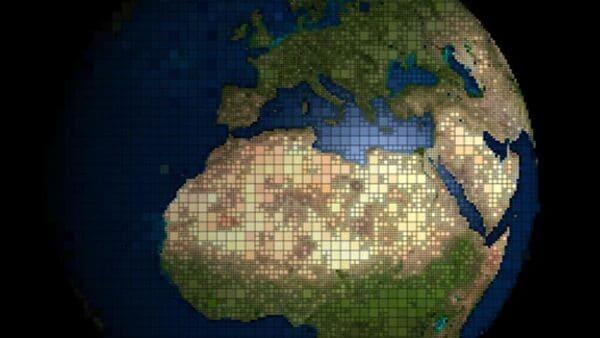UN Inspectors Warn Of Lost Knowledge Over Iran Nuclear Work
The International Atomic Energy Agency reiterated that it hasn't been able to verify Iran's stockpile of enriched uranium since mid-June, according to two documents seen by Bloomberg. Because of Iran's failure to cooperate with the IAEA, European powers last week referred Iran back to the Security Council for a resumption of UN sanctions.
“The agency lost continuity of knowledge in relation to the current inventories of nuclear material in Iran,” IAEA Director General Rafael Mariano Grossi wrote.“Without full implementation of safeguards in Iran being resumed, the agency will not be in a position to provide any conclusion or assurance regarding Iran's nuclear program.”
While satellite images show Israeli and US attacks destroyed much of Iran's surface-level nuclear activity, they also rolled back decades of access by UN inspectors to Tehran's vast atomic complex. It's the first time since Iran began enriching uranium in 2006 that the IAEA hasn't been able to account for gram-level changes to its stockpile. Monitors were last able to confirm the state and location of Iran's near-bomb-grade uranium a few days before the June 13 attacks began.
The IAEA's board of governors convenes next week in the Austrian capital of Vienna, kicking off a month of intensive diplomacy over Iran's nuclear ambitions. The Persian Gulf nation has until Sept. 27 to negotiate a compromise. Failing to do so will automatically cause UN sanctions to kick back in, including a full suspension of its uranium-enrichment program and limits to Iran's ballistic missile work.
The UN watchdog revised up the volume of highly enriched uranium last verified in Iran by 8% to 441 kilograms (18 pounds) - roughly equivalent to the amount of material needed to construct 10 nuclear weapons.
Iran's nuclear work has concerned the West for decades and tensions over the nature of its atomic program - which dates back to the 1950s - have frequently shaken oil markets and spurred fits of both conciliation and conflict with the US.
The Islamic Republic has always denied harboring intentions to develop a nuclear weapon and says it's accelerated its uranium enrichment in response to US President Donald Trump's first-term decision to quit the landmark 2015 nuclear deal and heavily sanction its economy.
Trump's move to heavily bomb some of Iran's key nuclear sites in June immediately derailed active negotiations between Tehran and Washington to try to resolve their differences. Iran has since said that it's not prepared to re-enter talks unless it has a guarantee that it won't be bombed again.
(Updating with additional details from seventh paragraph.)
More stories like this are available on bloomberg
©2025 Bloomberg L.P.
Legal Disclaimer:
MENAFN provides the
information “as is” without warranty of any kind. We do not accept
any responsibility or liability for the accuracy, content, images,
videos, licenses, completeness, legality, or reliability of the information
contained in this article. If you have any complaints or copyright
issues related to this article, kindly contact the provider above.
Most popular stories
Market Research

- Daytrading Publishes New Study On The Dangers Of AI Tools Used By Traders
- Primexbt Launches Empowering Traders To Succeed Campaign, Leading A New Era Of Trading
- Wallpaper Market Size, Industry Overview, Latest Insights And Forecast 2025-2033
- Excellion Finance Scales Market-Neutral Defi Strategies With Fordefi's MPC Wallet
- ROVR Releases Open Dataset To Power The Future Of Spatial AI, Robotics, And Autonomous Systems
- Ethereum-Based Meme Project Pepeto ($PEPETO) Surges Past $6.5M In Presale






















Comments
No comment